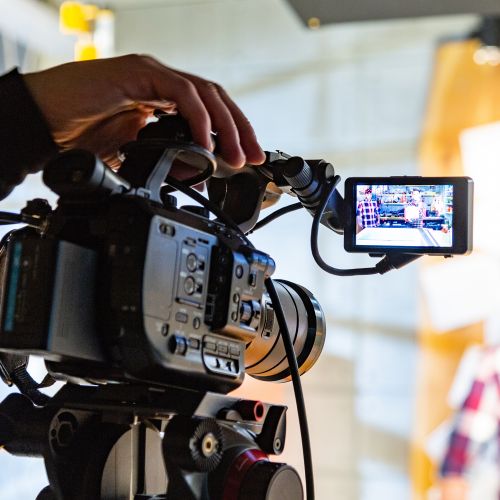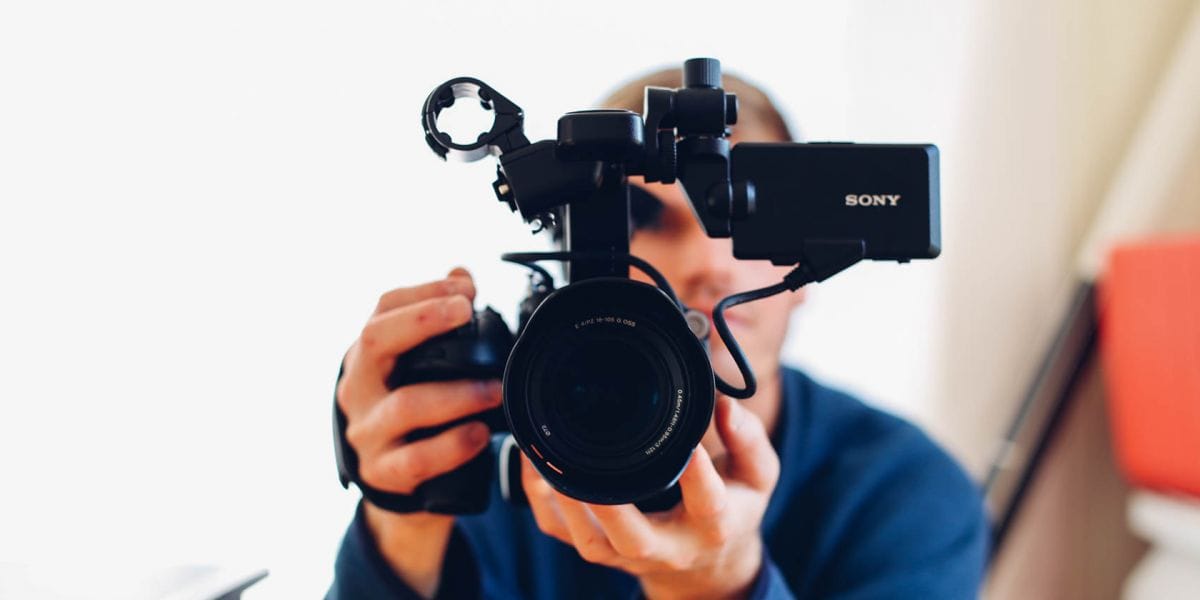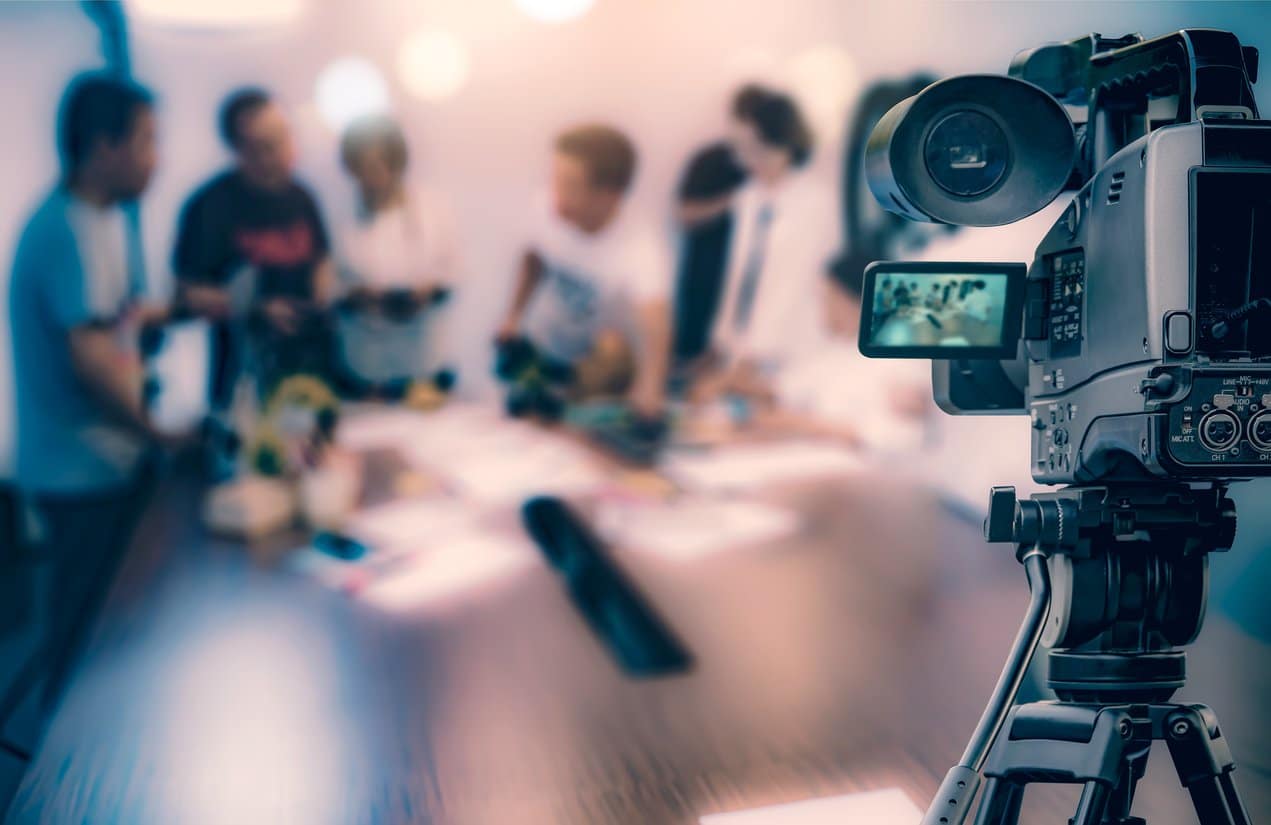Efficient Legal Videography for Lawyers.
The Duty of Legal Videography in Depositions and Trials
Lawful videography has actually emerged as a necessary device in both depositions and trials, offering a multifaceted approach to recording witness testaments. As legal professionals increasingly identify its worth, it triggers a deeper exam of just how these visual records can affect juror perceptions and test results.
Significance of Lawful Videography
Lawful videography plays an essential role in the documentation and discussion of depositions and trials. This customized area combines technological skills with legal expertise to produce a reputable record of process that can dramatically affect instance results. The visual facet of legal videography boosts the understanding of witness statement, allowing jurors and courts to observe not only the talked words but additionally the temperament, emotions, and body movement of the witnesses.

The relevance of lawful videography prolongs past the court; it likewise plays an essential role in preserving proof for future reference, whether for allures or more lawsuit. Because of this, its integration right into the lawful process is important for guaranteeing a reasonable and precise representation of the realities, inevitably adding to the pursuit of justice.

Process of Legal Videography
While catching the subtleties of depositions and trials, the procedure of legal videography involves a number of critical steps that guarantee high-grade, accurate recordings. A professional legal videographer prepares by assessing the instance products and recognizing the specific requirements of the deposition or trial. This preparation includes familiarizing themselves with the participants and the context, which aids in capturing essential information.
On the day of the recording, the videographer establishes the needed tools, which typically consists of high-definition cameras, microphones, and proper lighting. Guaranteeing ideal angles and audio top quality is critical, as it straight influences the efficiency of the recording. The videographer interacts with attorneys and participants to develop methods, making certain that everybody comprehends the recording process.
Throughout the deposition or test, the videographer thoroughly tape-records the proceedings, paying close attention to both spoken and non-verbal hints. legal videography. This includes capturing the demeanor and responses of witnesses and lawyers. After the session concludes, the videographer might modify the video footage for clarity and conformity with legal standards, generating an end product that properly shows the proceedings for future referral and visit our website usage in legal contexts
Advantages in Depositions
The consolidation of videography in depositions offers various advantages that boost the general procedure of collecting evidence. One main benefit is the capacity to capture witness testaments with visual and acoustic fidelity, providing a much more accurate depiction of the witness's disposition, tone, and body movement. This multidimensional technique allows lawyers and juries to examine reliability better than traditional written transcripts alone.
Additionally, videographed depositions act as an effective tool for protecting testimony. Ought to a witness come to be not available for trial, their tape-recorded deposition can be played in court, making certain that their evidence stays accessible and appropriate. This facet considerably minimizes the threat of losing vital details that could affect instance end results.
Additionally, making use of lawful videography promotes better preparation for lawyers. Assessing video footage enables legal groups to assess and improve their strategies, determining staminas and weak points in their cases. This preparatory advantage can result in more engaging discussions in court.
Lastly, videography enhances the overall professionalism and reliability of the deposition procedure, instilling self-confidence in customers regarding the thoroughness of their legal representation. By leveraging technology, lawyers can dramatically improve the effectiveness of depositions.
Impact on Trials
In numerous trials, the integration of videography can substantially affect the discussion of proof and the court's assumption. Lawful videography records witness click for more info testaments and critical evidence in a dynamic format, allowing jurors to engage with the product on numerous degrees. This visual element enhances the storytelling facet of a test, supplying context and psychological resonance that conventional text-based evidence may do not have.
In addition, video clip recordings can offer as powerful tools for impeachment throughout interrogation. When inconsistencies develop between a witness's prior declarations and their court room statement, video evidence gives an unbiased recommendation that can sway jurors' point of views. This immediacy and clearness can boost the integrity of a celebration's narrative while simultaneously threatening opposing debates.
Furthermore, making use of videography can aid improve complicated info, making it much more available to jurors who might struggle to grasp detailed details offered exclusively through spoken testimony. By integrating visuals with auditory info, lawful videography can improve retention and understanding, inevitably influencing the court's decision-making process. Consequently, the effect of videography in tests extends beyond plain looks; it plays an essential duty in shaping the legal landscape and end results.
Future Trends in Legal Videography
As we look toward the future of legal videography, numerous emerging patterns guarantee to improve its role within the court. One substantial trend is the combination of expert system (AI) in video evaluation and editing and enhancing - legal videography. AI can improve the procedure of identifying essential minutes in videotaped depositions, allowing attorneys to promptly access relevant material, consequently boosting efficiency in situation preparation
Furthermore, the increase of digital fact (VIRTUAL REALITY) and boosted reality (AR) technologies is anticipated to transform this page how jurors experience evidence. By immersing jurors in a simulated environment, these innovations can offer a much more profound understanding of complicated situations, causing more educated deliberations.

Furthermore, the enhancing demand for remote depositions, accelerated by the COVID-19 pandemic, will likely proceed. Lawful videographers will certainly need to adapt to brand-new software program and systems to make sure high-grade recordings in digital setups.
Finally, the growing focus on information safety will necessitate more stringent methods for keeping and sharing video proof. As the lawful landscape develops, legal videographers have to remain abreast of these trends to maintain their importance and efficiency in the judicial process.

Verdict
In recap, legal videography serves a vital function in the judicial process, improving the honesty of depositions and tests. As technology continues to advance, legal videography is poised to additional change its duty within the legal landscape.